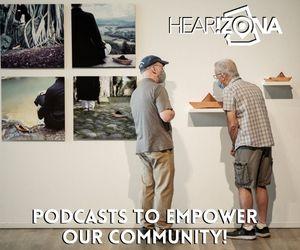Click to Listen:
Full Length Audio:
In 2000, Matt Haimovitz recorded Bach’s entire Cello suites. 15 years later, the cellist comes full circle with a new interpretation. K-BACH’s Sterling Beeaff catches up with Matt.
SB: So you are doing that thing that I really love about artists that I really appreciate, and that’s that I get a chance to hear you play Bach or Mozart over the course of a career, and get to reapproach them. That is kind of the focus, when I was reading the liner notes of what you’ve been doing with the cello suites.
MH: Absolutely. I felt that within days or certainly years, a couple of years, of that first recording. But in the last two or three years with my interest in historically informed performance and my using the tools of the time that’s taken a more urgent tone. It felt right 15 years later to reapproach these pieces.
SB: I think it is important for people to understand, I don’t know how much of the cello suites or these parts, that you were studying when you were very very young, and this was your bible.
MH: That was Gábor Reitő, cellist who studied with Pablo Casals. Bach was part of the daily diet. We played two movements of Bach every day. From the time I was 9 years old, all the way through til about 17 or 18 years old, that was part of how I grew up.
SB: So if my math was correct you were 29 at that first recording?
MH: I think you are right, 29, when I made it, you are right.
SB: Bach is one of those composers who for the audience is all about discovery, but for the player of these pieces that are kind of an enigma in and of themselves, the idea of them being an epiphany throughout your life makes all the sense in the world when you are 29, say, and you decided I am going to do this now, what was the impetus there? What made you think, “Ok, now I’ve got it.”
MH: Well, I had set them aside for ten years before that first recording, and I really was more involved with working with living composers, trying to get to the heart of the compositional process through that. Then I received an invitation, it was a big Bach year, in 2000, and I received an invitation from a festival in Germany. So I began to re-investigate them and tried to put away all the recordings that I had owned aside, various interpretations, and tried to get over my sense of intimidation of how much I revered this music and how many other versions are out there. I felt like I came to a very personal interpretation back then in 2000. But over the years I’ve evolved even more, done more research on performance practice and period playing, and setting up my own Goffriller cello with gut strings and using a baroque bow and I am looking very closely at the manuscript of Anna Magdalena and all of that has informed even more what I do and with Bach it is always a matter of priorities and balancing priorities. To what degree are these dance movements in a suite? And should you treat them like dances? To what degree is it freer form, more improvisational? And to find that sense of balance, to what degree is this for the intellect, and to what degree is it for the soul? Is it supposed to move people, in a sense of affect? Just finding that right balance for yourself, you know, 15 years later, I have a very different set of priorities that I did 15 years ago.
SB: I am sure epiphany is not the right word, but with Bach, even for the audience, it’s an awakening sometimes, an awakening of listening, of how it fits into your life. When you are thinking about these, when you come to this second recording, was the sweet spot in thinking about it, or was the sweet spot when you started playing and found something musically that just made it all happen?
MH: Both. I think there is a certain kinesthesia, a certain kind of physical process of playing this music. He was masterful in that way. There is a certain joy and a certain release of tension in drawing out a bass note in the right way on the cello. So the combination of how that feels, and what that means for the narrative of the music- that’s actually one of the epiphanies I had after making that first recording. This idea that one physically –it’s really a part of the piece. In fact one of my compositional theory teachers, Carl Shocker, he wrote on the 4th Suite of Bach, he likened symbolically the way the 8th notes are arranged on the page, he likened it to a cross, and so there is this sense of crucifixion in the opening prelude of the 4th suite, and it kind of feels like a crucifixion, nothing is resonating, you don’t have any open strings to help you out in E-Flat major, it’s a hard key to play in on the cello. So I think it is no accident that Bach chose that key to play that music. There’s that, and one thing led to another, and I realized it’s time for a new recording.
SB: I don’t want to overstate the importance of any part, or one part of Bach, because I love it all, but it seems like the Cello Suites, even more than the violin partitas take advantage of just what you are talking about, open strings, where the notes should be played on the instrument, which you are discovering again, and how they should really sound. When you talk are these dances, or are these like the Suites, which are filled with dances too? Artistically in your liner notes you thank Anna Magdalena for writing this down, because the Bach score is gone. There are all sorts of ideas of why this was written, now that you have this understanding, why do you think the cello suites even exist?
MH: Oh boy. All I know is that Bach was far ahead of his time, that it took a few centuries for Casals to discover it by accident in a store in Barcelona before we even realized what a treasure we have. But I think Bach was basically showing the way, that one single instrument could create a whole world of sound and keep the multiplicity of voices at going at once, simultaneously. I am sure that he had to keep his cellist in the court busy, and this was one way to improve that cellist’s technique, and give him something to do. It was also not completely out of thin air. 30 years before Bach wrote his Cello Suites, Domenico Gabrielli in Bologna wrote down his Ricercare, improvisational forms like preludes in a way. A lot, in fact, all the keys that Gabrielli used, Bach took exactly those same keys, with Gabrielli there is seven of them so there is an a minor as well. All the other keys are the same. Even the licks, Bach steals some licks from this guy in Italy 30 years before. SO, it doesn’t come out of thin air, a lot of this was in the air, but Bach synthesizing this kind of encyclopedic collection is really so far ahead of his time and he set the standard for cello playing.
SB: One of the coolest things you do, is all that you do- I see the next couple of days you’ll be playing on the Columbia campus, and you’ll be off to Montreal playing popular stuff, you are taking the Bach Cello Suites sometimes to biker bars, and you are playing in concert halls. How has this impacted your career that way, as you’ve had this epiphany about Bach, which for a lot of us, is a foundational composer. Has it changed your perspective in playing other things?
MH: Of course. I mean, whenever you change the venue or the routine of what you are doing, it affects what you are playing. But really, Bach is Bach whether you play it in a biker bar, or Carnegie Hall. It wasn’t necessarily meant to be in either of those places. [LAUGH] Maybe more in church and sort of more intimate spaces- but the music is so powerful. For me, it is all part of the same trajectory, and I like to mix it all up. With Christopher O’Reilly I have a show called “Shuffle Play Listen”, and will go between Janacek and Stravinsky and Radiohead and the Cocteau Twins and John McLaughlin, so we go back and forth in different genres. But Bach somehow transcends that all on its own. I have friends in pop genres, jazz, that are deeply influenced by Bach. In fact, there is a book by Eric Siblin he wrote on the Cello Suites. He was a pop critic for the Montreal Gazette, and he just became obsessed with Bach’s Cello Suites. So whether you love classical music or other genres, these pieces are incredibly universal and I never tire of returning to them. I guess I am obsessed with the evolution, the changing thoughts, and the relationship with these pieces and what I personally hear and see in them as time goes on. It is a lifetime process.
-Produced by Jane Hilton










